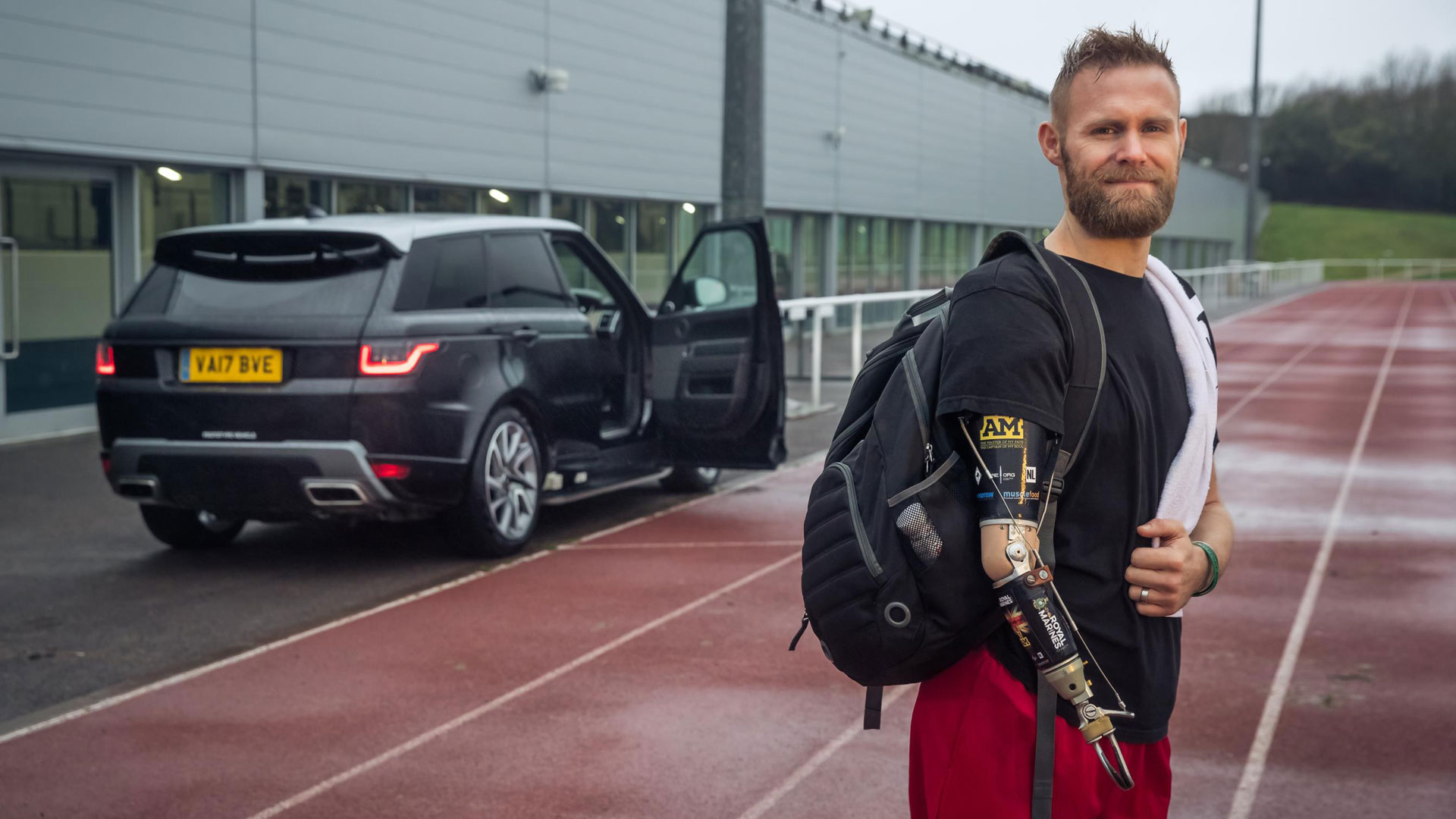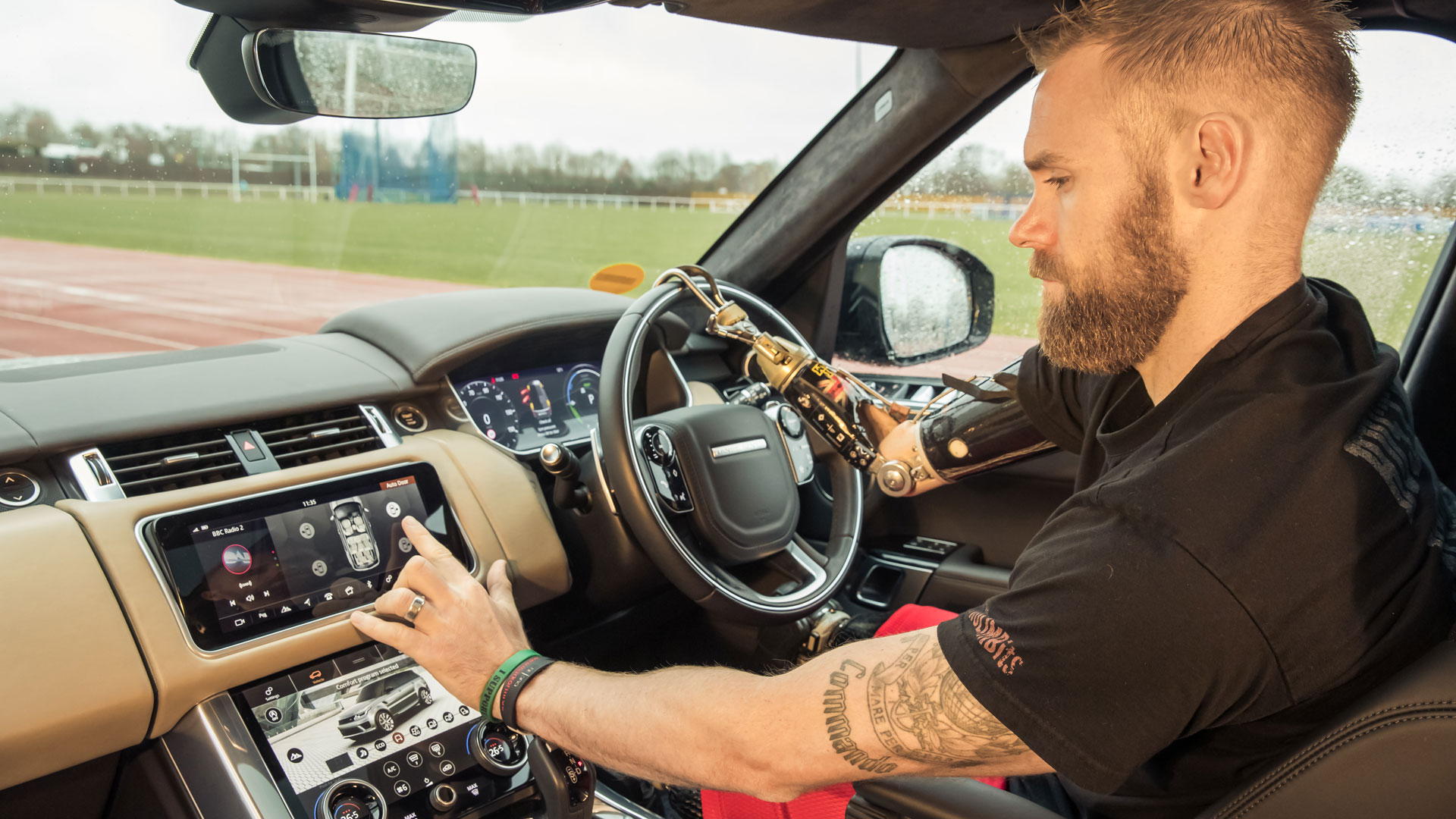
Jaguar Land Rover has unveiled a mobility door prototype that uses motion sensors and keyless technology to open automatically as the driver approaches.
The tech, which JLR likens to an ‘invisible valet’, is designed for disabled people for whom a car is their main form of transport. It also has benefits for those carrying child seats or large items, as the driver no longer has to free a hand to open the door.
Once inside, occupants can close the door courtesy of an overhead button – similar to the system used in a Rolls-Royce. Radar sensors are fitted to ensure the door doesn’t open into objects, while the doors can be programmed to lock as you walk away.
Former Royal Marine and gold medal-winning Invictus athlete, Commando Mark Ormrod, is trialling the system for JLR. He said the technology could change the lives of motorists with mobility problems.
He commented: “This innovative Jaguar Land Rover technology would be such a benefit to me and has real power to change lives for those who face problems getting in and out of the car.
“Opening and closing the car door may seem like such an insignificant task to many people but sometimes it’s the small, everyday obstacles which people take for granted that are most frustrating to overcome for those living with disabilities.”
Technology for all

The system was tested on a rig for six months before being fitted to a Range Rover Sport. Far from restricting the technology to disabled groups, JLR sees the automatic doors as being relevant to all future vehicles.
Xu Zhou, deep learning technical research manager at JLR, said: “The mobility door is an exciting piece of technology that offers a real-world value to our customers. There’s also something very welcoming about the door opening on your approach – something we think will be greatly valued as we become more familiar with shared mobility.”
Read more:
- Lotus drifts into Christmas with tree-laden Evora 410
- Ferrari to celebrate Schumacher’s 50th birthday with special exhibition
- Cleaned-up Mini John Cooper Works returns